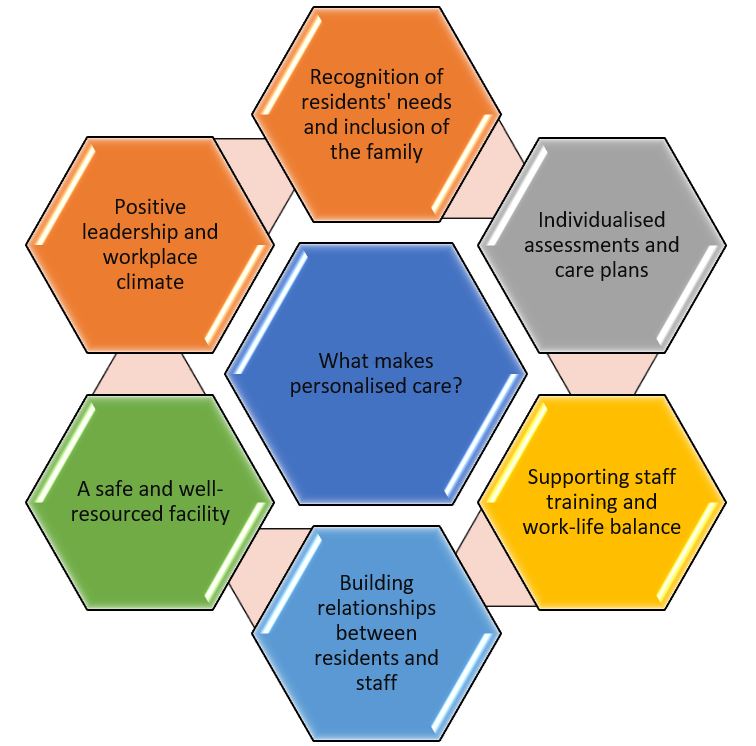Achieving Personalised Dementia Care for Rural Australians
Tuesday, October 6th, 2020
No two people experience dementia in the same way. The expression of dementia depends on the cause of the condition and the parts of the brain that are affected. Hence, it is important to take a personalised approach to dementia care that focuses on the unique needs of the individual.
Rural dementia care below par
This personalised approach may be especially important in rural Australia, where aged care has been reported to be sub-standard[1][2]. A recent study out of Flinders University explored the factors that shape personalised dementia care in rural Australia[3]. The team interviewed over 100 staff from five rural aged care facilities in Queensland and South Australia. Two facilities were privately owned, one public funded, one Aboriginal, and one not-for-profit. Staff included clinical managers, registered nurses, enrolled nurses, and care workers.
Residents needs and the family perspective at the centre while maintaining a supportive workplace culture
The team found that a key dimension of personalised care was recognition of the residents’ needs and the inclusion of family members’ perspectives. Individual assessment and care planning were also described as fundamental components of quality care. Promoting the development of meaningful relationships and empathy between staff and the residents was highlighted, as was supporting a healthy work-life balance for staff and ongoing education and training. The leadership team, workplace culture, and the resources and safety of the home were also found to shape personalised care.
A holistic approach
Critically, the study omitted to involve family members or residents in the research. Moreover, staff participants volunteered to be interviewed, so there may have been a recruitment bias. For example, the study brief may have attracted people who were disgruntled with the service and keen to voice their views. Alternatively, participants might have been motivated to present a positive view of themselves and the service. Nonetheless, the study speaks to the importance of a holistic approach to dementia care and one that is founded in building positive relationships across residents, family, staff, and management. Person centred care is a universally desired approach to best practice and yet its implementation appears to still be a long way off. Studies like this one confirm the importance of multi-pronged strategies.

[1] https://www.sciencedirect.com/science/article/pii/S0167494315300832?via%3Dihub
[2] https://bmchealthservres.biomedcentral.com/articles/10.1186/s12913-019-4322-8
[3] https://journals.plos.org/plosone/article?id=10.1371/journal.pone.0233450

